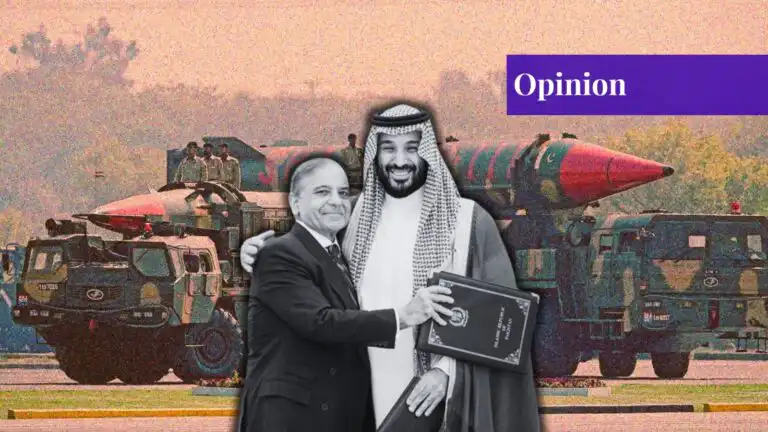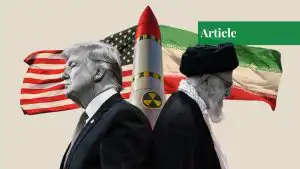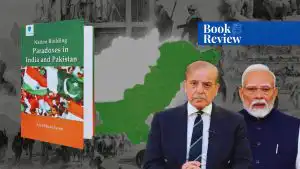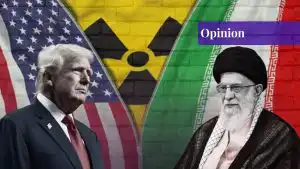For much of its history, Pakistan’s nuclear programme has been framed in the simple term ‘survival.’ The bomb has been marketed as the ultimate answer to the conventional superiority of India since the late 20th century, a means of deterrence to ensure no repeat of 1971. The nuclear experimentation by India in 1974, named ‘Smiling Buddha,’ left behind an unchanged national imperative. The Pakistanis would ‘eat grass,’ as the then PM Zulfikar Ali Bhutto made the famous promise, to have their own bomb. However, with the changing world around Pakistan, the question is, is deterrence enough? Or does Pakistan need to reconsider its nuclear future beyond an India-centric framework?
In modern times, the solution would be towards the latter. The nuclear programme in Pakistan continues to play a central role, but recent geopolitical developments, financial weaknesses, and regional alliances call for a wider vision. The nuclear history of Pakistan is taking a new turn, whether it is climate change, the pact with Saudi Arabia, energy crises, or the arms control race to diplomacy. New challenges and opportunities are redefining the debate and require a reassessment of how Islamabad views its nuclear policy in the rapidly changing world.
Nuclear weapons have brought deterrence, but not peace. There are crises like the case of Kargil in 1999, the Parliament attack in 2001-02, Mumbai in 2008, Balakot in 2019, and the recent Pahalgam incident in 2025, which continue to shed light on the instability that lies under the nuclear shadow. India and Pakistan are in the stability-instability paradox: the detonation of the bomb prevents full-scale war but allows taking more risks at a smaller level of confrontation.
Currently, there are three broad challenges that are encountered by the nuclear programme in Pakistan. To begin with, the balance of power with India has tipped because New Delhi has been pouring a lot of advanced military equipment, such as missile defense and based surveillance. This technological hegemony threatens to make deterrence ineffective unless Pakistan spreads its own strategy. Second, beyond South Asia, the international non-proliferation order has not treated Pakistan favourably. India has civil nuclear deals, exemptions, and major power recognition. Pakistan, in its turn, is regarded as the underdog – a state whose nuclear justification is under constant question. This unequal combination is an amplifying factor towards isolationist Islamabad and a vicious cycle of defensiveness.
Third, the increasing danger of climate change has added disabilities that have seldom been addressed when it comes to nuclear discussions. Extreme weather, such as disastrous floods, places a strain on the resources of a country and may jeopardise infrastructure, including nuclear facilities.
Collectively, these problems indicate that there is a danger of strategic stagnation in holding on to a more limited deterrence approach.
Against all these challenges, there are opportunities. Pakistan is in a position to make a positive contribution towards regional stability because of its position as a nuclear nation. In the same breath, the nuclear capability of Pakistan can be redirected into civilian nuclear power to provide a new avenue for resolving the long-running energy deficit and minimizing the use of fossil fuels. Nuclear technology currently contributes 8 per cent of the national power supply, with an intention of 20 per cent by the year 2050 as part of a permanent resolution to the problem of unending power shortages. This would help bolster the green transition in Pakistan and improve its diplomatic image with global backing.
The other option that is presented is in soft power. Pakistan can enhance its credibility by advocating the high standards of nuclear security and safety on the world platform to dispel the idea of irresponsibility.
The changing security alliance between Pakistan and Saudi Arabia indicates this wider strategic realignment. Over the decades, there has been speculation concerning Saudi funding in the early period of the nuclear programme in Pakistan. In the present times, those ties are beginning to emerge more in defence and security cooperation. It has also been reported that the agreement entails high levels of military co-operation, and some observers have even indicated the chances of nuclear consultations.
This alliance underscores the important fact that the nuclear future of Pakistan is no longer defined only by India but also by the Middle East. Islamabad is a partner that Riyadh will be pleased to have, since it is concerned about the nuclear path that Iran has taken. For Pakistan, this orientation presents both risks and opportunities. On one side, stronger security collaboration with Saudi Arabia would help Pakistan to become more strategically relevant, provide economic benefits, and increase its presence outside the South Asian region.
The other side of this pact is that the mere sense of a nuclear umbrella over Riyadh might cause international suspicion and make the already precarious position of Pakistan in the international system of nonproliferation even more difficult.
If managed properly, the Saudi partnership has the potential to enhance Pakistan’s standing as a regional link between South Asia and the Middle East and to bolster its reputation as a responsible nuclear player. Mismanaged, it would drag Pakistan into geopolitical game-playing and derail its attempts to position itself as a stabilising factor.
This agreement is an expression of both aspiration and threat. It elevates the diplomatic status of Pakistan on the one hand, which is considered a security guarantor not only to itself but also to the entire Muslim world. The economic payoff might be substantial: enhanced energy relations, Saudi investment, and an enlarged strategic relationship, which alleviates financial insecurities in Pakistan.
The risks, on the other hand, are high. Any sense that Pakistan is going to spread nuclear technology, or even that it might, will create attention in Washington, Tel Aviv, and Tehran. It can also plunge Islamabad into the contests that are way beyond its direct interests. What starts as a prestige opportunity may lead to involvement in conflicts outside its borders.
The nuclear future of Pakistan is all about identity. Will it always be a state that is always in the shadow of India and forms its nuclear arsenal and opportunities just in terms of survival? Or will it come out with nuclear capacity as leverage for diplomacy, development, and world position?
Deterrence may have achieved survival, but that is no longer sufficient. Pakistan needs to envision a nuclear future that is not simply preventive of war but is also productive of stability, development, and dignity. Beyond deterrence is an opportunity to redefine what the bomb is to Pakistan – not necessarily a weapon of last resort, but a device of a healthier, more connected, and respected future.
If you want to submit your articles and/or research papers, please visit the Submissions page.
To stay updated with the latest jobs, CSS news, internships, scholarships, and current affairs articles, join our Community Forum!
The views and opinions expressed in this article/paper are the author’s own and do not necessarily reflect the editorial position of Paradigm Shift.







